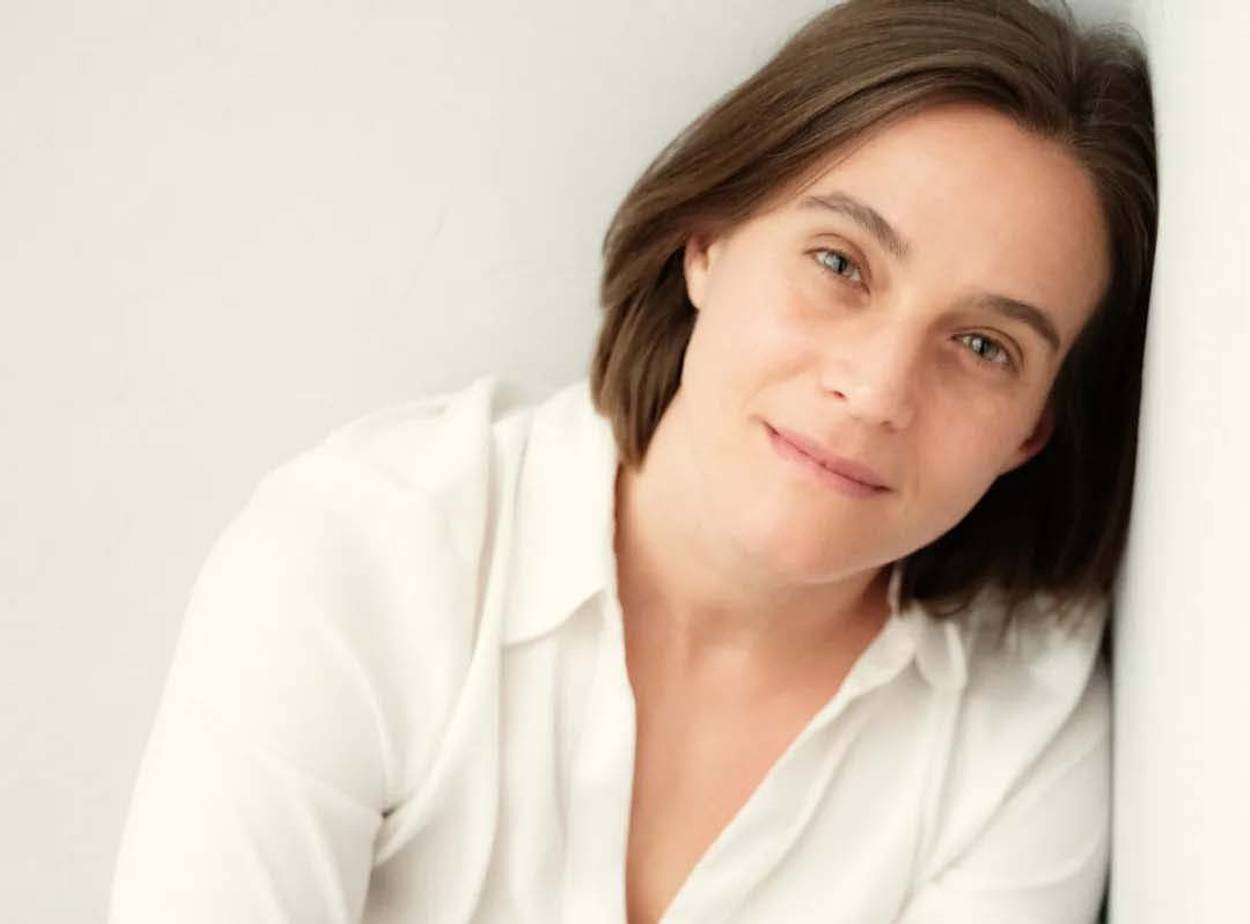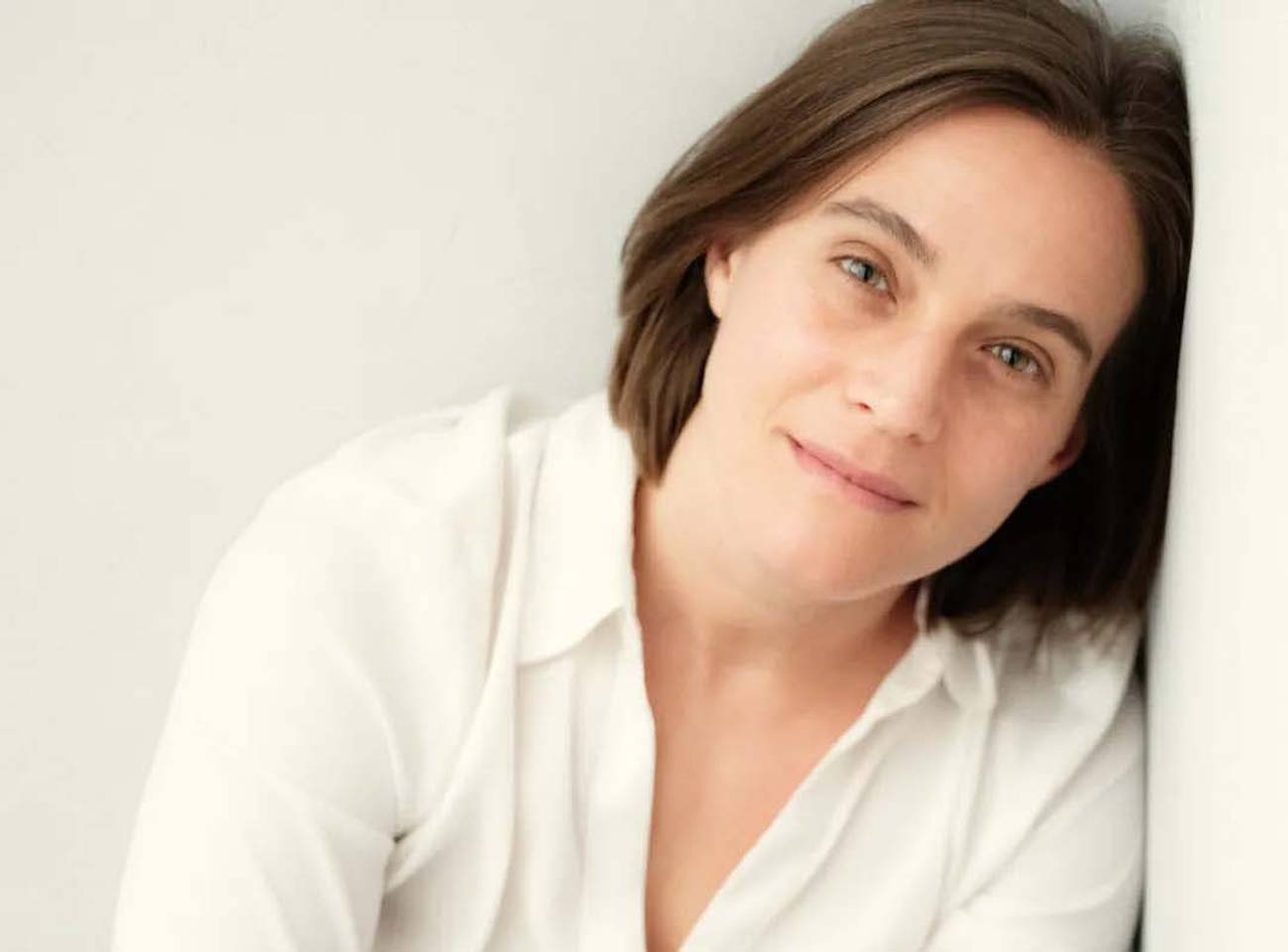The Unaloner
Jessica Jacobs’ new poetry collection

Parker J Pfister

Parker J Pfister

Parker J Pfister

Parker J Pfister
For Jessica Jacobs, Unalone is more than a title of her new poetry collection: It is also a one-word condensation of the driving force of her work, a sense of reassurance and connection to the voices of the ancient tradition, and to the poets that surround her. Unalone, published last month by Four Ways Books is a booklong project: In it, Jacobs goes through each of the Torah portions in Genesis, offering poetic responses to each. Interpretive and original, respectful and playful, scholarly and personal, this volume is both poetry and midrash at once.
Jessica and I met at a sleepy coffee shop in western Massachusetts, where she spent a few days as a part of her book tour. She described going on a life-changing retreat in a desert a number of years ago. She did not see other people for weeks, she said, and described gradually entering a state of profound self-inquiry: “All of the questions that I had suppressed, the really big questions about—why are we here, how do we live with death, how do we live a good life—there was suddenly room for them to enter to my mind. When I went back home, I tried to find the answers in poetry, went to a lot of readings, tried to find the answers in novels, and it all felt really thin.” It was then that she listened to two interviews that converged in her mind: one with James Martin, Jesuit priest and a follower of St. Ignatius of Loyola whose ideas of the imaginative prayer, resonated with the poet. And she also learned about Midrash from an interview with Avivah Zornberg, a Jewish scholar. “And I thought, oh, this is ancient, tested wisdom, and maybe I need to reinvestigate this, having walked away from my Judaism when I was probably 12 years old.”
These reinvestigations took Jacobs to the Jewish Theological Seminary, where she met Rabbi Burton Visotzky, a world-renowned authority on Midrash. Visotzky offered Jacobs to study in havruta—a one-on-one immersive style of learning sacred Jewish texts. And, over seven years of researching and learning, Unalone came to life as a full-fledged manuscript.
In “At Age 969, Methuselah Gives a Valedictory Address,” the poet gives voice to a biblical character who, in the Torah itself, is entirely silent. Methuselah is Noah’s grandfather, known mostly for having the lengthiest life mentioned in Torah: He lives till 970. Jacobs imagines what Methuselah may want to say, in the final year of his life:
In the beginning, each day was bright
as a new coin and fit for spending. Now?
Nothing is allowed to be exquisitely itself.
Even a kiss is a trotline heavy with hooks,
trawling up all kisses past.
Perhaps God isn’t omniscient, just old
enough all patterns are laid bare. Our lives
not preordained, only predictable:
how even empty rooms are now crowded
with my dead. Yet when I was
a pair of grass-greened knees, even the birds
seemed to ask, What do you want to be
when you grow up? As though transformation
were possible. But my metamorphosis
was the ordinary kind: that boy
into this man. Still, I hope
some mystery remains. May the grass
that soon grows from me whisper
all the answers I wish I’d given: A warm temple
in a wintry place. A welcoming bed for those I love best.
A lake deep enough to hold all our longing.
Midrash is a form of classic Jewish interpretation that stretches back to at least the Talmudic period, an imaginative way of filling gaps in the Torah, adding color, explaining textual peculiarities. And that is precisely what’s happening in this poem: In the Torah text, none of Methuselah’s deeds are recorded, no encounters, conversations, or glimpses into the character’s inner life. No great fuss is made over the fact that Methuselah lived longer than anyone else documented in the Torah—the narrative is casual and dry. The poet, then, imagines what that experience of living for nearly a millennium might feel like.
Jacobs’ Methuselah is melancholy, and even his wisdom is tinged with resignation. The poet’s terrific enjambment at the end of the second verse lets a playfully irreverent quip hang in the air, before resolving into a philosophical observation. Methuselah knows that he might be the closest thing to God, at least age-wise—and it is not all that it is cracked up to be. Yet in the final stanza, as if in life’s final moments, he bursts forth with gorgeously poetic images, “answers I wish I’d given”—to the questions we can only attempt to imagine. Methuselah may be unimpressed with his millennium on this earth but in the final moments, each of the three images that come to him are ways of comforting and being comforted—being, indeed, “unalone.”
Midrashic poetry as a genre, in recent decades, was pioneered, above all, by poet Alicia Ostriker, who, in her astute close readings of the Tanach, uses colloquial, gritty language to humanize many of the biblical characters. Ostriker’s focus, oftentimes, is on the overlooked female characters, and Jacobs’ “Another Kind” is a poem very much in that same tradition. Serah bat Asher, in the Torah, was mentioned merely as part of the census, while later midrashic traditions expanded her story a great deal further. Quoting one such medieval midrashic text, in her poem, Jacobs asserts a sense of kinship to Serah:
When Jacob’s sons returned from Egypt, they asked Serah, daughter of Asher, known for her wisdom and skill with a harp, to gently relay the news to their father that his son Joseph was not dead. Upon hearing it, Jacob blessed her, saying, “The mouth that told me Joseph is alive will never taste death.”
—Sefer HaYashar
“Another Kind”
Her grandfather stood in prayer, extolling, cajoling,
thumping his chest with his fist as though to break
a breach for God. Serah, in his shadow, swayed
as he swayed, her fingers like breeze on her harp strings,
her song just another layer of light. Again and again, she
swayed and breathed, As the sun, as the wind, your son
Joseph lives, her voice a fig tree unfurling its leaves, a
prickly pear filling with rain. Serah, the Torah’s first poet.
Serah, undying, found in every generation that followed:
who was a slave in Egypt, the first to know Moses
as a true prophet; Serah, who wandered the wilderness
as the cloth that shielded the Tabernacle, serah ha-odef
(the overlapping excess), the dayenu promise that though
just enough would have been sufficient, there will always be
a little more; Serah, who entered the Promised Land, overlapping
one age with the next. Her voice tasted death
only in others; Serah, the witness, repository
of her people’s stories. And who
is she now? Santa Fe yogi, angel
investor, Provincetown captain, theatre director.
What healer, what bridge,
what shelter, what builder, what writer
as prophet? No husband, no children, her songs
were her progeny. Serah, selah. Matriarch of my line.
Midrash scholar James Kugel, in “Two Introductions to Midrash,” famously described an archetypal Midrash-writer as the “inspired interpreter, successor to the great prophets.” Like a prophet, the writer of Midrash is using her imagination to expand the sacred narrative and create a place for ourselves within it.
This poet’s conversation goes far beyond her own poetry, however. In 2022, along with a few like-minded poets, Jacobs launched Yetzirah: A Hearth of Jewish Poetry, an organization that brings together and supports Jewish poets. Modeled after Cave Canem, which nurtures and supports Black poets, and Kundiman, which focuses on Asian American poets, Yetzirah quickly became one of the most important Jewish artistic collectives in the U.S. With readings, workshops, annual retreat, and a robust online database, it is, above all, a supportive and warm community—especially since October 2023, when a number of literary spaces became politically charged in a way that has made many of the Jewish poets ill at ease. Since October, “people went from appreciating to needing it,” is how Jacobs put it. She also recalled meeting Alicia Ostriker, who asked her: “How will Yetzirah change Jewish poetry and American poetry? And how will it change Judaism?”
These are tantalizing and inspiring questions that require no immediate answers. I do know that by writing poetry that responds to the weekly Torah portion, the poet tethers herself to the cycle that returns to its readers, year in, year out. And just as Torah readers will be coming back to the same portions next year, they will be also be returning to classic Midrash, and maybe Sefer Yashar, and Avivah Zornberg and Robert Alter. I hope, they will also come back to Jessica Jacobs and her poems.
Jake Marmer is Tablet’s poetry critic. He is the author of Cosmic Diaspora (2020), The Neighbor Out of Sound (2018) and Jazz Talmud (2012). He has also released two jazz-klezmer-poetry records: Purple Tentacles of Thought and Desire (2020, with Cosmic Diaspora Trio), and Hermeneutic Stomp (2013).